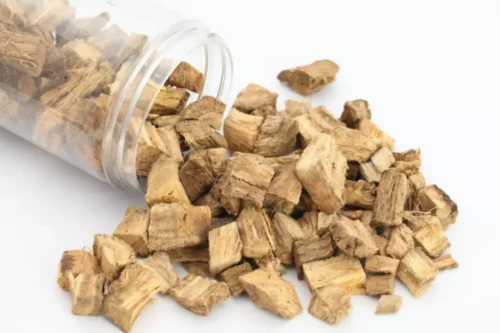
While alcohol is clearly linked to increased aggression andviolence, many people can drink and drink a lot without ever experiencingheightened anger or aggression. Blackouts are dangerous events, as the individual basically loses the ability to be cogent or aware of their alcohol induced rage actions. In most cases, the individual will pass out from intoxication and sleep off the effects of the alcohol, but in the morning may remember nothing about a specific period of time from the prior night.

Seek Anger Management Support Groups

Another study revealed that alcohol-dependent men had drunk significantly more alcohol in the 12 hours before violent conflicts with their partners than before situations that did not end https://ecosoberhouse.com/ in violence (14). Acute episodes of high alcohol consumption therefore seem to favor aggressive behavior more strongly than chronic alcohol consumption (15, 16). Thus it seems that more frequent severe, acute intoxication makes a decisive contribution to the high prevalence of alcohol-related aggression in alcohol-dependent individuals. This can make it harder for you to think clearly and what is alcoholism manage your behavior, leading to increased aggression.
Genetics and Impulsive Behavior
In such a case, drinking alcohol can further exaggerate the condition and precipitate anger-related issues. Although alcohol consumption may produce short-term relaxing and soothing effects, it has many adverse effects on human behavior and emotions in the long run. As mentioned above, alcohol can damage the brain cells and their chemicals; alcohol can lead to aggression, uncontrolled anger, offensive behavior, and violent activities. Moreover, alcohol can also cause dysregulation in the body’s stress pathways, resulting in increased anxiety, stress, psychosis, and suicidal tendencies. Unfortunately, the equilibrium of these particles gets disrupted when the levels of alcohol are high in the blood, causing damage to the brain’s functioning. Similarly, long-term use of alcohol can also result in psychological dependence and withdrawal symptoms upon avoiding alcohol use.
The Truth Behind Alcohol and Anger
- Aggressive men recorded higher activation of the left amygdala than aggressive women and a positive correlation with orbitofrontal cortex (OFC), rectal gyrus, and ACC activity, which was negatively correlated in women.
- Blackouts are dangerous events, as the individual basically loses the ability to be cogent or aware of their actions.
- People are exposed to instigating influences every day, but few actually lead to aggression.
- Over time Ryan came to better understand factors that contributed to his drinking, including his anger and increased aggression when drinking.
- This can make it harder for you to think clearly and manage your behavior, leading to increased aggression.
- Knowing your limits and sticking to them can also help prevent episodes of anger when you drink.
The findings were explained by emphasizing that concern for the future involves greater prefrontal cortex resources that help inhibit the excessive impact of alcohol. Interestingly, those in the control group tended to misidentify expressions as happy. I’ve observed this pattern over several decades in helping clients deal with anger. Alcohol, like fatigue, diminished sleep, stress, and certain drugs, inhibits the activation of the prefrontal cortex, that part of our brain responsible for problem-solving, judgment, and overseeing and managing emotions. This disinhibiting aspect of alcohol in effect paves the way for feelings to dominate thoughts and behavior.
The Effects of Alcohol on the Brain and Emotions
Managing and understanding the triggers for this aggressive behavior is critical when dealing with an angry inebriated individual especially when attempting to diffuse the situation. Adopting these anger management strategies, alongside a treatment plan for alcoholism, will provide a well-rounded approach to addressing alcoholic rage syndrome. If you or a loved one are struggling with alcoholic rage syndrome, it is essential to seek help from a qualified professional who can provide customized support and guidance. At Sabino Recovery, our residents have found relief through comprehensive assessments and evidence-based treatment approaches tailored to their unique needs. When combined with other evidence-based therapies, such as cognitive behavioral therapy (CBT), MAT can help prevent relapse and increase your chance of recovery. However, some people are more likely than others to be angry when drinking alcohol.
Effects of alcohol-related aggressiveness

AM focused on the development of relaxation and cognitive coping skills for anger regulation (see Table 1 for outline of AM). Cognition-relaxation coping skills (CRCS; Deffenbacher & McKay, 2000) was chosen as the anger management protocol for four reasons. First, its coping skills approach fits conceptually into coping skills relapse prevention conceptualizations (Marlatt & Gordon, 1980; Witkiewitz & Marlatt, 2004). Moreover, meta-analyses (Beck & Fernandez, 1998; Del Vecchio & O’Leary, 2004; DiGuiseppe & Tafrate, 2003; Edmondson & Conger, 1996) show CRCS to be an effective intervention that had roughly equivalent effects to other interventions.
Psychological Factors Contributing to Mean Drunk Behavior

And all too often, as in Ryan’s case, it reflects displacement, directing anger toward a target that is not the source of an individual’s original anger. Under the influence of alcohol, those already predisposed toward anger may vent or, more seriously, direct their anger toward a target that might be experienced as less threatening than the original target. Aside from the emotional toll it takes, having an alcoholic partner who is frequently angry can also result in tangible repercussions.
In line with this, using a sample of 85 countries, Weiss et al. (2018) reported no association between alcohol consumption level and homicide rates; however, they found a positive association between hazardous drinking pattern and homicide rates. Third, although women comprised 48% of the sample, low statistical power prevented an assessment of gender as a possible moderator of treatment outcomes. Future research should assess gender as a moderator of treatment outcome and use that information to inform the content of alcohol-adapted anger management for alcohol dependent men and women. We considered anger measures and indices of AA involvement as potential candidates in this regard. All treatment sessions included a breath test to ensure that participants had .000 BAC; if not, the session was rescheduled.
The Psychology Behind Alcohol-Induced Aggression
Understanding marijuana addiction the science behind your anger when drinking can empower you to make healthier choices and help you find ways to stop being aggressive when drunk. It’s all about self-awareness, taking small but consistent steps, and seeking help when needed. Just like navigating any tough situation in life, it might not be easy, but it’s definitely worth it.
3.2 AA involvement
Moreover, alcohol alters the delicate balance of neurotransmitters in the brain. It enhances the effects of GABA, the brain’s primary inhibitory neurotransmitter, which typically has a calming effect. However, it also reduces the activity of glutamate, an excitatory neurotransmitter. This imbalance can lead to mood swings and heightened emotional responses. This might include friends who can help keep you accountable, or a designated “buddy” who can intervene if they notice you becoming aggressive. In fact, recognizing the need for support is a sign of strength and self-awareness.
